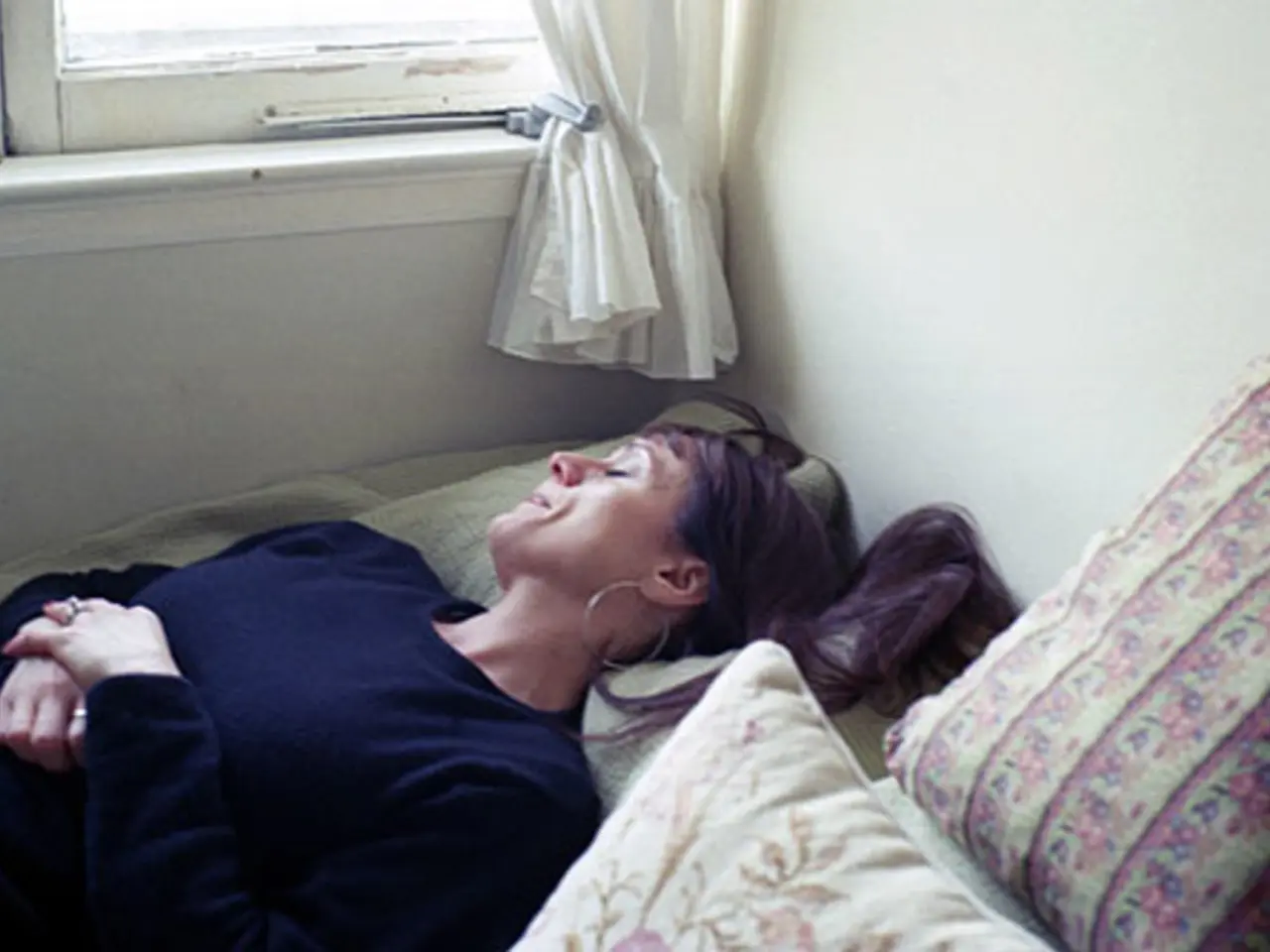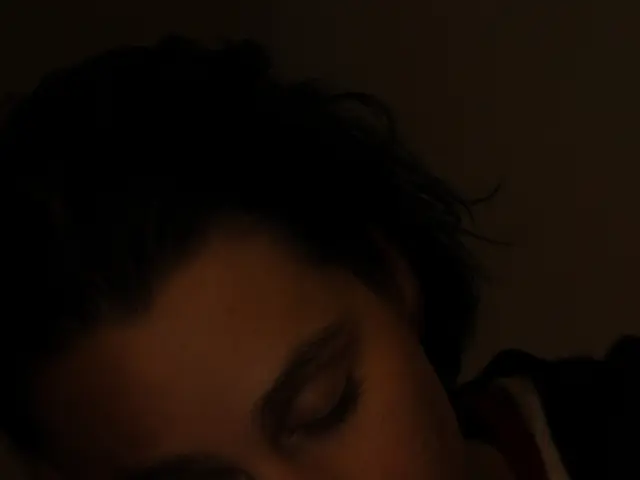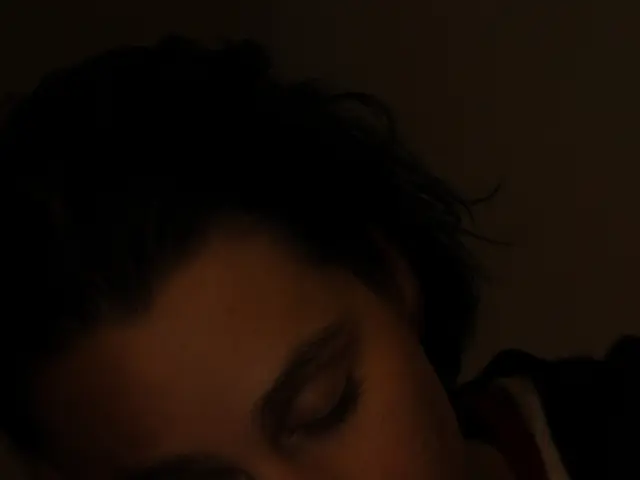Struggling with sleepless nights? Here's the truth about sleep and a specialist's advice on overcoming insomnia.
Medical Professional Zorina from Krasnodar shares her methods for overcoming sleeplessness
Why can't you catch those coveted Z's? Turns out, there could be numerous reasons ranging from psychological issues and anxiety to depression and disrupted sleep patterns. As if that's not enough, medical factors such as thyroid diseases, cardiovascular issues, and chronic pain could also be the culprit. Even certain meds like antidepressants, beta-blockers, and contraceptives can mess with your sleep game[1].
Sleeplessness, if not addressed, can lead to a world of troubles. A specialized methdologist, Anna Zorina, at the Krasnodar Regional Center for Medical and Preventive Health, highlights the grim reality. Chronic lack of shut-eye can impair productivity, lead to increased irritability, overall health deterioration, and even up the ante for conditions like anxiety disorders, depression, diabetes, and obesity[1][3][4].
So, what's the cure-all remedy? Step 1: Establish a daily routine. Make it a point to hit the hay and rise with the sun, every single day - yes, even weekends. Next, create a comfy snooze den. Dark, quiet, cool room, plush mattress, and cozy pillows - check!
Drawable curtains and white noise machine are your new besties here. Now, limit your intake of caffeine and alcohol, especially post-lunch. Work out regularly, but avoid power workouts before bedtime. A wind-down routine like a warm bath, a good book, or a calming tune will help you gently drift off to la-la land[1].
Ah, technology – the double-edged sword. While it can be a boon, the blue light from those screen babes can suppress melatonin, the sleep hormone, so it's best to avoid using 'em post-sunset[2].
Now, if insomnia persists for weeks on end, it's time to consult a sleep specialist. These folks will help you identify the root cause and get the right treatment[1].
P.S. If you're curious about differentiating between rotavirus infection and food poisoning, Dr. Andrei Sakharov has you covered!
Bye for now, and sweet dreams!
Behavioral and Psychological Strategies:
- Cognitive Behavioral Therapy for Insomnia (CBT-I):
- Changing sleep-related thoughts and behaviors through education, sleep hygiene tips, relaxation techniques, and establishing a consistent sleep schedule.
- Brief Behavioral Therapies:
- Condensed versions of CBT-I focusing on behavioral strategies to improve sleep.
- Stimulus Control:
- Associating the bed with sleep and removing distractions from the bedroom.
- Sleep Restriction Therapy:
- Limiting the time spent in bed to align with actual sleep needs.
- Relaxation Training:
- Using techniques like progressive muscle relaxation and mindfulness to reduce stress and promote sleep.
Lifestyle Changes:
- Consistent Sleep Schedule:
- Establishing a regular bedtime and wake-up time is crucial for regulating your body's internal clock.
- Sleep Hygiene:
- Practicing good sleep hygiene includes avoiding caffeine, nicotine, and alcohol close to bedtime, creating a dark, quiet, and cool sleep environment, and avoiding screens before bed.
- Physical Activity:
- Regular exercise improves sleep quality, but vigorous workouts before bed can interfere with sleep.
- Stress Management:
- Engaging in stress-reducing activities like meditation or yoga helps relax the mind and body, promoting better sleep.
- Limit Naps:
- Short naps during the day can be beneficial, but afternoon naps can interfere with nighttime sleep.
- Avoid Heavy Meals Before Bed:
- A light dinner helps prevent discomfort during sleep.
- Consider Technology:
- Take advantage of apps or online platforms that offer CBT-I or guided relaxation techniques to improve sleep quality.
[1] https://www.ncbi.nlm.nih.gov/pmc/articles/PMC6698652/[2] https://www.ncbi.nlm.nih.gov/pmc/articles/PMC5595802/[3] https://www.ncbi.nlm.nih.gov/pmc/articles/PMC3270211/[4] https://www.ncbi.nlm.nih.gov/pmc/articles/PMC3090718/[5] https://www.ncbi.nlm.nih.gov/pmc/articles/PMC4045200/
Incorporating behavioral and psychological strategies, such as Cognitive Behavioral Therapy for Insomnia (CBT-I), can be effective in improving sleep quality, by changing sleep-related thoughts and behaviors, and promoting a consistent sleep schedule. Maintaining mental health and overall well-being, one should prioritize implementing lifestyle changes like establishing a regular sleep schedule, practicing good sleep hygiene, engaging in regular physical activity, managing stress, and considering the impact of technology on sleep quality.








